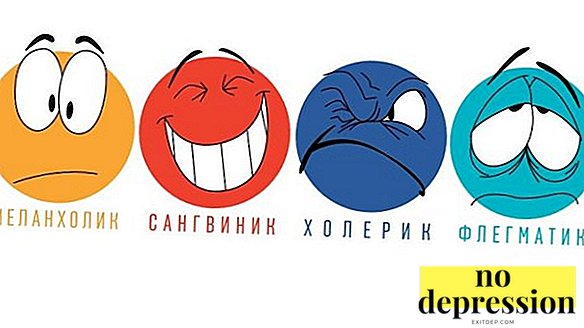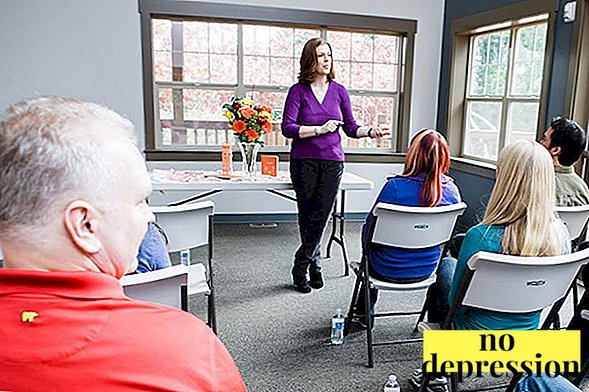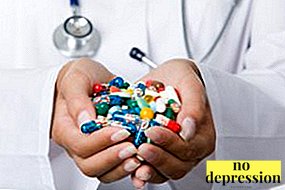 Features of prescription pills for depression
Features of prescription pills for depression
The views of pharmacologists and doctors on the problems of depression and treatment approaches differ. The doctor determines the need to take drugs for depression and selects the right one. At the same time, there are much more problems with the drug selection process than with the determination of the need to take pills for depression.
The difficulty of selecting pills for depression
Properly selected pills make a huge contribution to the treatment process. Key difficulties in the selection of funds are as follows:
- the clinical picture and course of depression in a patient often changes with time
- the number of atypical, erased and prolonged forms grows
- treatment-resistant forms of depression
The majority of antidepressant users are patients with somatic pathology, taking a large number of different drugs. Compatibility of drugs from different groups of diseases can give an unexpected side effect or reduce the effect of the drug on the body.
Types of pills for depression
The main drugs used to treat depression are:
- Antidepressants
- Tranquilizers
- Neuroleptics
- Nootropics
- Medications for breastfeeding and pregnancy
- Depression medications that are suitable for children
Consider each group of pills.
Antidepressants
Antidepressants are the most commonly prescribed pills for depression. They act on the human body in such a way that the patient no longer feels apathy, anxiety and fear. This effect, together with the improvement of mood, is achieved by working with neurotransmitters of the brain, due to which, the biochemistry of the brain will change.
If your kidneys, heart or liver ache, then antidepressant treatment is undesirable, it is better to try to pick up other pills. It is also important to consider the need for a smooth discontinuation of antidepressants.
The main types of antidepressants:
- TCA - tricyclic antidepressants
- MAOI - monoamine oxidase inhibitors
- SSRIs - selective serotonin reuptake inhibitors
- serotonin, norepinephrine and dopamine reuptake inhibitors
TCA - tricyclic antidepressants
Successfully applied for over 50 years. Tricyclic drugs increase the activity of neurotransmitters - norepinephrine and serotonin, reducing the biochemical processes responsible for depression. Studies have revealed that tricyclic antidepressants such as imipramine and clomipramine work better in panic disorders. Acceptance of this group of drugs is often accompanied by dry mouth, constipation, urinary retention and tachycardia. Elderly people may experience confusion, visual hallucinations and an increased sense of anxiety. Reduce libido and can lead to cardiotoxic effects if you take these drugs for a long time.
- amitriptyline
- azafen
- coaxil
- imipramine
- doxepin
- clomipramine
IMAO
Increase the concentration of norepinephrine and serotonin in the blood. Recently, even in traditional preparations of this group, new results have been recorded on the human body, for example, it has become known: MAOI has effectively recommended itself for atypical depression and obsessive-phobic disorders. It is important to note: this group of drugs for depression is a delayed action drugs. They are prescribed in combination with a diet, as it can be accompanied by fluctuations in pressure, swelling, dizziness and weight gain.
- befol
- Melipramine
- metralindol
- moclobemide
- pyrazidol
- sydnophen
- tetrindole
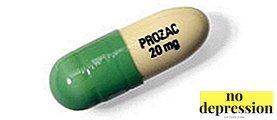 SSRI
SSRI
Obsessive thoughts? Anxiety or panic? We are the Prozac generation! SSRIs are the most common medications regarding gentle effects. Often ineffective in severe forms of depression.
- fluvoxamine
- fluoxetine
- paroxetine
- Prozac
- citalopram
Serotonin and norepinephrine reuptake inhibitors
The latest development of pharmacological companies. The effectiveness is similar to the group of tricyclic drugs for depression. Differ in the minimum number of side effects and contraindications. They bring sleep and the level of daily activity to normal, are effective in severe depressive states, relieve anxiety, fatigue, balance the nervous system in a short time.
- Alventa
- Velaksin
- agomelatine
- melitor
Tranquilizers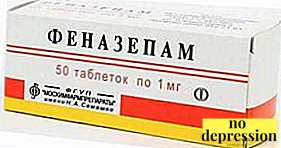
Anxiety? Feeling fear and tearfulness with insomnia? Only a short course of treatment, only under the supervision of a doctor and only without alcohol. This may be accompanied by drowsiness, tremors, indigestion and a bunch of other side effects. The dosage smoothly changes from minimum to necessary.
- deazepam
- phenozepam
- chlordiazepoxide
- seduksen
- lorazepam
- bromazepam
- Elenium
Neuroleptics
Such pills for depression inhibit the entire nervous system, so they are used for agitation, delusions, apathy and hallucinations. Medication may be accompanied by tremor, muscle stiffness, increased drowsiness, decreased cognitive abilities and a large number of other side effects.
- aminazin
- Zeldoks
- leponex
- haloperidol
- truxal
- fluanksol
- teasercin
Nootropics
These pills help to restore the cognitive abilities of the brain, without damaging the head. Often used for nerves, reducing mental abilities and depression with migraine. Can be used as a preventive measure to get rid of stress. Relatively small amount of side effects.
- piracetam
- mildronat
- nicergolin
- nootropil
- Phenotropil
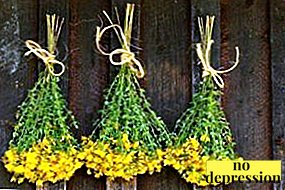 Means, used during lactation and pregnancy
Means, used during lactation and pregnancy
Often the question arises about the use of medicines in children and pregnant women. Conducting research on these groups of patients according to ethical canons is unacceptable, and the depressed state of the expectant mother can negatively affect the child and increase the risk of postpartum depression. Hypericum for depression is a frequent alternative to complex chemical medications. In severe form of depression in young mothers, when there is a need to take inorganic drugs, the child can be transferred to artificial nutrition.
The main drugs allowed in the early stages of pregnancy (first trimester):
- fluksen
- sertraline
- paroxetine
Breastfeeding drugs:
- glycine
- notta
- motherwort
- drugs with valerian
- new passit
- persen
Depression Medicines for Children
Fortunately, the psyche of children is much more lively, agile and flexible, without rusty patterns of behavior. In the treatment of depression, psychotherapy in children makes a disproportionately greater contribution to the healing process than in adults. Often it costs zveroboem fish oil or new passit. However, if the situation is bad, tsipralex, lexapro, amitriptyline, teasercin, escitalopram may be prescribed for patients over 12 years of age. In this case, the effect of the reception occurs not earlier than in a month. Related to this is the additional difficulty in the selection of drugs for depression.
Total
Whatever the means of dealing with the disease, we urge you to remember that drug treatment should be carried out exclusively under the supervision of your doctor. If you think you are depressed, her treatment should begin with a visit to a professional.

 Features of prescription pills for depression
Features of prescription pills for depression SSRI
SSRI
 Means, used during lactation and pregnancy
Means, used during lactation and pregnancy